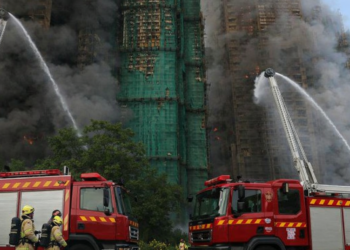Russia’s announcement of a “white list” of state-sanctioned apps that will remain operational during mobile internet blackouts is a worrying escalation of its digital authoritarianism. Critics has gone as far as to allude that it’s a calculated and sinister move to choke off the last remaining avenues of free communication and force its citizens into a hermetically sealed, state-controlled information ecosystem.
By deliberately omitting foreign services like WhatsApp and YouTube, the Russian government is revealing its true intent: to tighten its grip on the flow of information and isolate its population from the outside world. This is the final and most terrifying step in the creation of a “Sovereign Internet” where the state, not the user, has complete control.

The False Pretext of National Security
The Russian Digital Development Ministry’s claim that this “special technical solution” is to ensure security is a transparent lie. While Ukrainian drones may use mobile internet to navigate, the much larger goal is to eliminate dissent and control the narrative of the war.
By cutting off access to foreign apps that are still widely used for communication and information, the Kremlin is ensuring that during moments of crisis—whether a military setback or a domestic protest—its citizens will be confined to state-backed platforms like MAX Messenger, which are easily monitored and censored.
Why It Matters
The international community’s response to Russia’s digital aggression has been too little, too late. For years, the Kremlin has been meticulously building the technical infrastructure for a digital ‘Iron Curtain’, and the West’s piecemeal approach of sanctions and condemnation has failed to deter them.
To counter this, a more robust and coordinated strategy is needed. First, international tech companies must refuse to comply with Russian demands for censorship and data localization, even if it means sacrificing a lucrative market.
In addition, Western governments and human rights organizations must work to develop and promote a new generation of sophisticated anti-censorship tools—such as next-generation VPNs and encrypted messaging platforms—that are resilient to state-level attacks.
The international community also has to step up and impose severe and targeted sanctions on the individuals and companies that are complicit in building and maintaining Russia’s censorship apparatus.

















